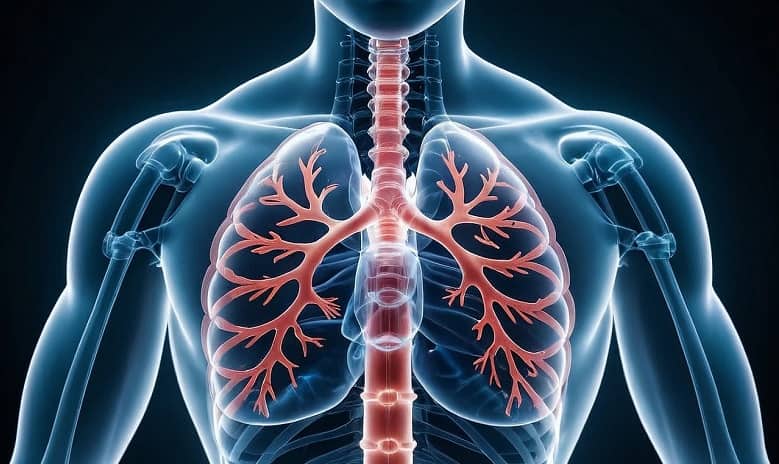Lung health is a critical aspect of overall well-being, yet it’s often taken for granted until issues arise. Whether it’s a persistent cough, shortness of breath, or more severe symptoms, lung problems can significantly impact your quality of life. This article aims to guide you through the necessary steps to take when facing lung issues, from recognizing symptoms to seeking medical advice and understanding your diagnosis.
Things to do When Experiencing Lung Issues
Recognizing Symptoms
The first step in addressing lung issues is to recognize the warning signs. Symptoms like a persistent cough, shortness of breath, wheezing, or chest pain should not be overlooked. Other red flags include chronic mucus production, coughing up blood, and a notable change in the ability to exercise. If you notice any of these symptoms persisting, it’s time to consult a healthcare professional.
Seeking Medical Attention
When experiencing symptoms, seeking medical attention in a prompt manner is paramount. Your healthcare provider will likely conduct a thorough examination, which may include listening to your lungs, checking for swelling in the legs or feet, and possibly recommending tests like chest X-rays, CT scans, or lung function tests. These examinations are essential in diagnosing the exact nature of your lung problem.
Understanding the Diagnosis
Once a healthcare professional evaluates you, you might encounter diagnoses of common lung conditions such as asthma, Chronic Obstructive Pulmonary Disease (COPD), pneumonia, or, in more severe cases, lung cancer. Each of these conditions presents differently and may require distinct treatment approaches. Understanding your specific diagnosis is a crucial step in managing your lung health.
When factors like asbestos exposure cause lung issues, it’s crucial to consider legal options. Mesothelioma, a severe form of cancer affecting the lining of the lungs, is often linked to asbestos exposure in the workplace. In such cases, seeking legal support can be an essential step. Law firms like Sokolove Law can help navigate the complexities of legal claims associated with workplace-related lung diseases.
The Role of Lifestyle Changes in Managing Lung Health
Lifestyle plays a significant role in the management of lung health. Simple changes can have a profound impact. For instance, if you smoke, quitting is the most significant step you can take to protect your lungs. Improving the air quality in your home by reducing pollutants and allergens can also help, as can regular exercise to strengthen the lungs and improve overall health. These lifestyle adjustments not only aid in managing existing lung issues but also play a preventive role in maintaining long-term lung health.
Medical Treatments
Medical treatments for lung issues vary depending on the diagnosis. For example, asthma often requires the use of inhalers that deliver medication directly to the lungs, reducing inflammation and opening airways. COPD may be treated with bronchodilators and steroids to ease symptoms and prevent complications. In cases of lung infections like pneumonia, antibiotics are typically prescribed.
However, for more severe conditions like lung cancer, treatments may include chemotherapy, radiation therapy, or surgery. Adhering to the prescribed treatment plan and discussing any side effects or concerns with your doctor will help you manage your condition effectively.
The Importance of Mental Health Support
Dealing with lung issues can be emotionally taxing, not just for the patient but also for their loved ones. It’s essential to recognize and address the mental and emotional impact of chronic lung diseases. Seeking support from mental health professionals, such as counselors or therapists, can provide coping strategies and emotional relief. Joining support groups where individuals share similar experiences can also be beneficial. These avenues offer a safe space to express feelings, share experiences, and receive emotional support, contributing significantly to overall well-being.
Alternative Therapies and Complementary Medicine
In addition to traditional medical treatments, alternative therapies and complementary medicine can offer additional support in managing lung issues. Practices like acupuncture, yoga, or the use of certain herbal supplements have been found to provide relief to some individuals. These therapies can help in managing symptoms, reducing stress, and improving overall quality of life. However, it’s important to consult with healthcare providers before trying these options, as they should complement, not replace, conventional medical treatments. Understanding the benefits and risks of these therapies will help you in making informed decisions about your health.
Staying Informed
Knowledge is power, especially when it comes to managing health problems. Staying informed about your lung condition, current research, and treatment options can empower you to make educated decisions about your health care. Seeking information from credible sources, such as healthcare professionals, medical journals, and reputable health websites, is vital. However, be cautious of misinformation, especially from unreliable internet sources. Being well-informed not only helps in understanding the condition and its management but also prepares you to have more productive discussions with your healthcare team.
Planning for Long-Term Care and Management
For chronic lung conditions, planning for long-term care is an essential aspect of disease management. This includes regular consultations with healthcare providers, consistent monitoring of the condition, and possibly adjusting treatment plans over time. It’s important to work closely with your medical team to develop a long-term care strategy that’s tailored to your specific needs. This might involve regular medical check-ups, medication management, lifestyle adjustments, and possibly home health care. A well-planned long-term care strategy can help in maintaining the best possible quality of life.
Taking Control of Your Lung Health
Navigating lung issues can be a challenging journey, but taking the right steps can make a world of difference in managing the condition and improving your quality of life. From seeking timely medical attention and understanding your diagnosis to exploring the right medical treatments, each step is crucial.
With the help of a healthcare provider, being proactive in your approach to your specific lung condition and planning for potential long-term care is key to taking control of your lung health. With the right resources and support, you can navigate this journey more confidently and maintain a focus on your overall well-being.
